Sen. Edward M.
Kennedy is jumping into the middle of an uproar within the
gay community whose causes he has long championed.
The Massachusetts
Democrat is leading a push in the Senate for a federal
ban on job bias against gays, lesbians, and bisexuals -- but
not transsexuals, cross-dressers, and others whose
outward appearance doesn't match their gender at
birth.
''We will
strongly oppose it,'' said Roberta Sklar of the National Gay
and Lesbian Task Force. ''Leaving transgender people out
makes that a flawed movement.''
The House in
November approved the bill, written by gay Massachusetts
Democratic representative Barney Frank, despite strong
protests from many gay rights advocates that it didn't
cover transgender workers.
''It was made
very clear in the fall that most LGBT organizations -- the
vast majority of LGBT organizations -- do not want Congress
to shove a civil rights bill down our throat that we
don't want,'' said Mara Keisling, executive director
of the National Center for Transgender Equality.
Some gay rights
groups, including the Human Rights Campaign, supported
Frank's bill and the decision not to risk its rejection by
Congress by insisting on immediate transgender
protections as well.
''We will
continue this work until all members of our community no
longer fear being fired for who they are,'' said Brad
Luna, Human Rights Campaign communications director.
Kennedy said
Senate approval of the bill could pave the way for extending
protections to transgender workers next year, when he hopes
Democrats will increase their numbers in Congress and
a Democratic president supporting gay rights will be
in the White House.
''The fact is
that the House of Representatives has taken action,''
Kennedy said in an interview Tuesday with the Associated
Press. ''The best opportunity for progress is ... to
follow along on the action of the House of
Representatives, and then look down the road to a new day
after we have a good Democratic Congress and a
Democratic president.''
Kennedy expects
an ''uphill fight'' in the narrowly divided Senate, where
60 votes rather than a simple majority would be needed to
overcome expected GOP stalling tactics.
Kennedy and
Senate Majority Leader Harry Reid, a Nevada Democrat who
supports the bill, are working on the timing for bringing
the bill to the floor.
The bill would
make it illegal for employers to make decisions about
hiring, firing, promoting or paying an employee based on
sexual orientation. There are exemptions for churches
and the military.
The decision by
House Democratic leaders last fall to scuttle protections
based on gender identity created sharp splits in the party
and among gay rights activists.
Frank was harshly
criticized by many longtime allies in the gay rights
community over the stripped-down bill after he urged them
not to let the dispute over transgender workers doom
an important civil rights gain. He pledged to continue
to fight for protection for transgender workers.
Supporters said
the bill would have failed in the House if the
transgender protection had been included. But the
transgender community and its supporters were furious.
Keisling's group has already approached Kennedy.
''We've expressed
to Senator Kennedy's office our disappointment and
opposition to his idea to move forward,'' Keisling said.
''We're always working and talking with his office and
we'll see what happens.''
It is unclear
whether the Senate fight will be as intense.
''My concern
would be the Democratic leadership in the Senate is a bit
reticent in stepping into what is a minefield,'' said
Patrick Sammon, president of Log Cabin Republicans.
The nation's largest gay Republican group is lobbying
GOP lawmakers for support.
A veto from
President Bush is expected if the proposal does pass the
Senate. The White House has cited constitutional concerns
and said the proposal could trample religious rights.
Conservative
critics of the bill say it could undermine the rights of
people who oppose homosexuality for religious reasons and
lead to a wave of dubious discrimination lawsuits.
Some say gay rights advocates are exaggerating the
extent of antigay discrimination to boost their
political agenda.
''It's offering
special protection to a group that isn't normally seen as
disadvantaged,'' said Tom McClusky, vice president of
government affairs at the socially conservative Family
Research Council.
Federal law bans
job discrimination based on factors such as race,
gender, and religion.
Thirteen states
plus the District of Columbia have workplace
antidiscrimination laws covering both sexual orientation and
gender identity. Seven states have anti-discrimination
laws covering sexual orientation but not gender
identity. (Andrew Miga, AP)












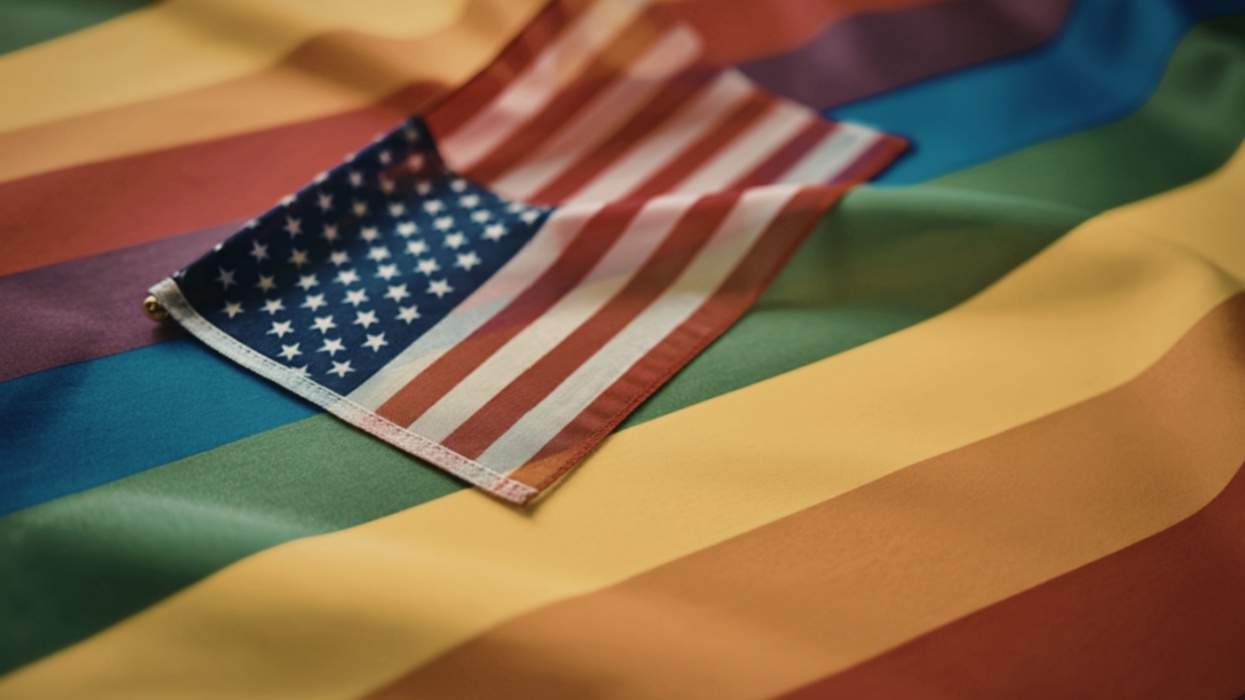

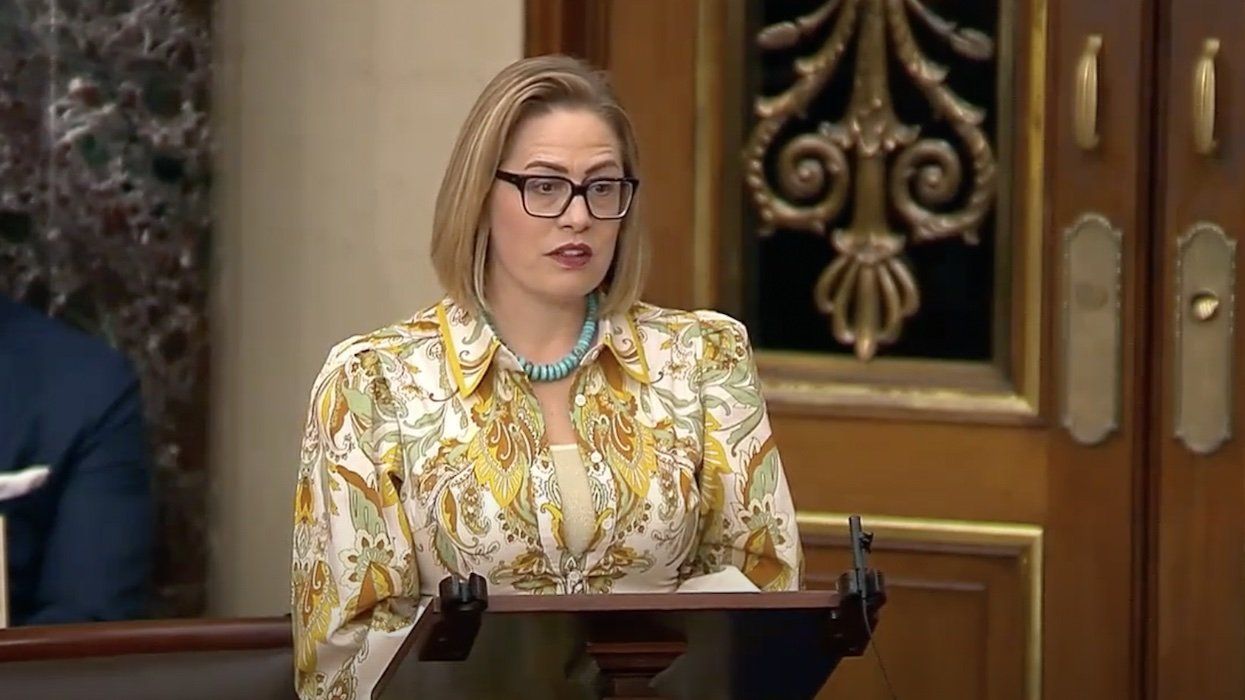
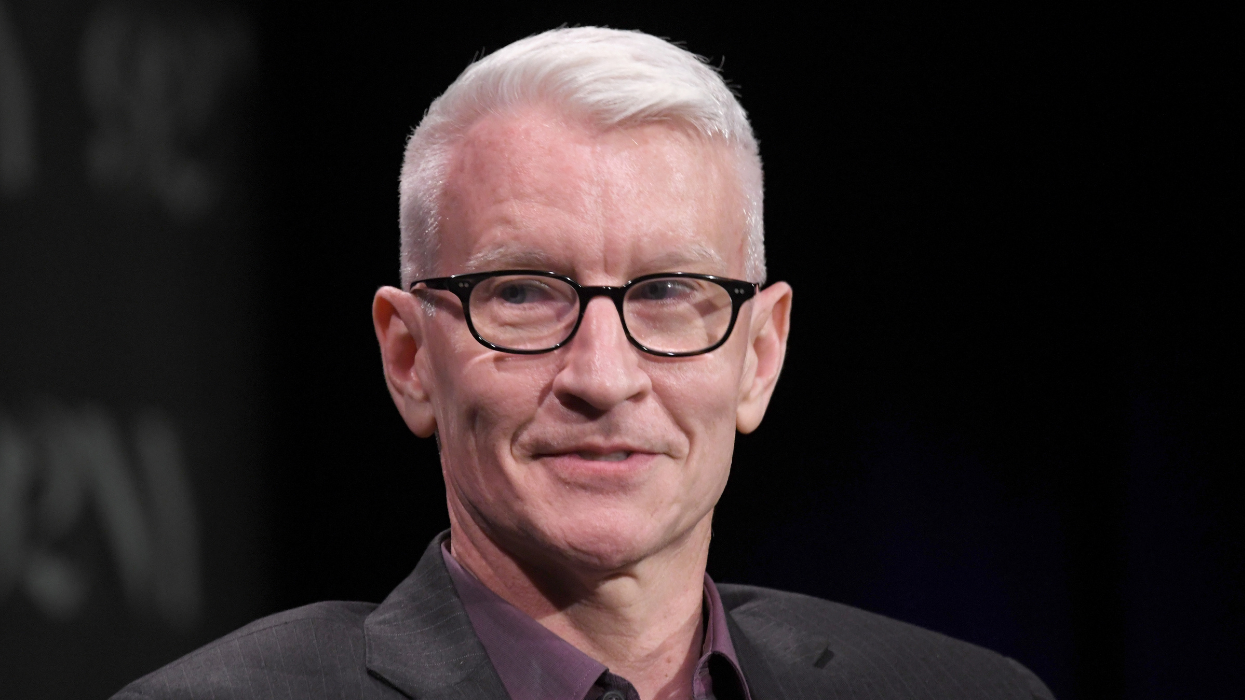
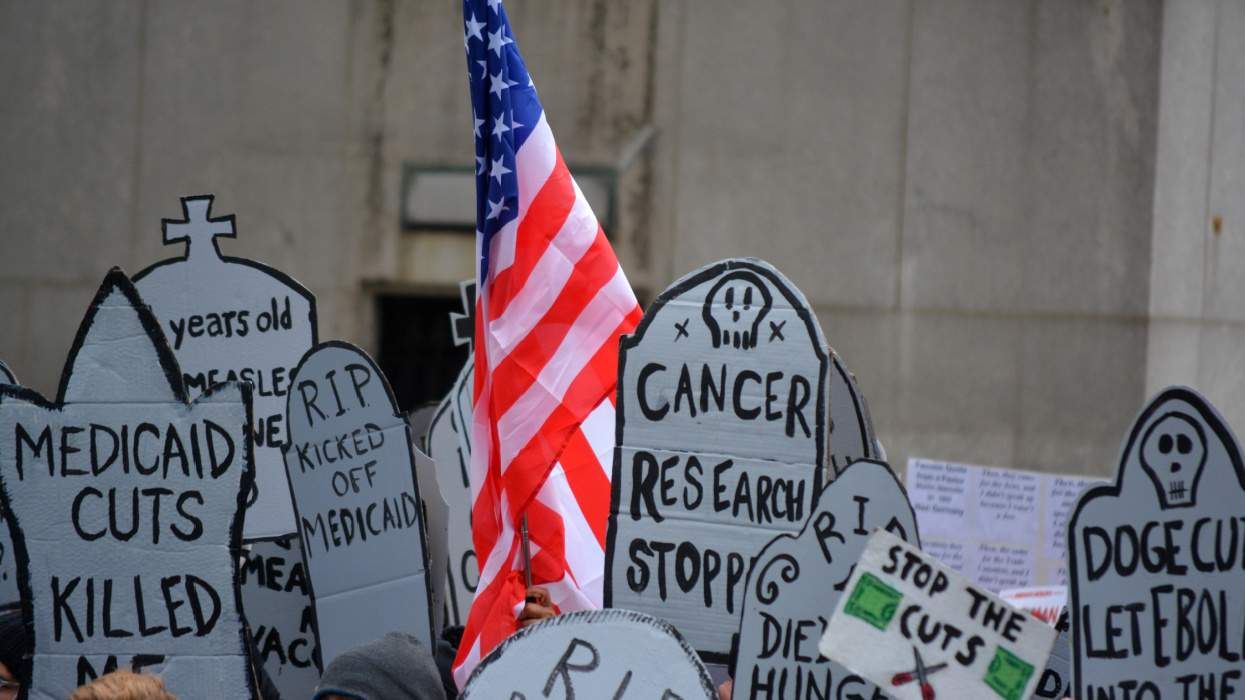







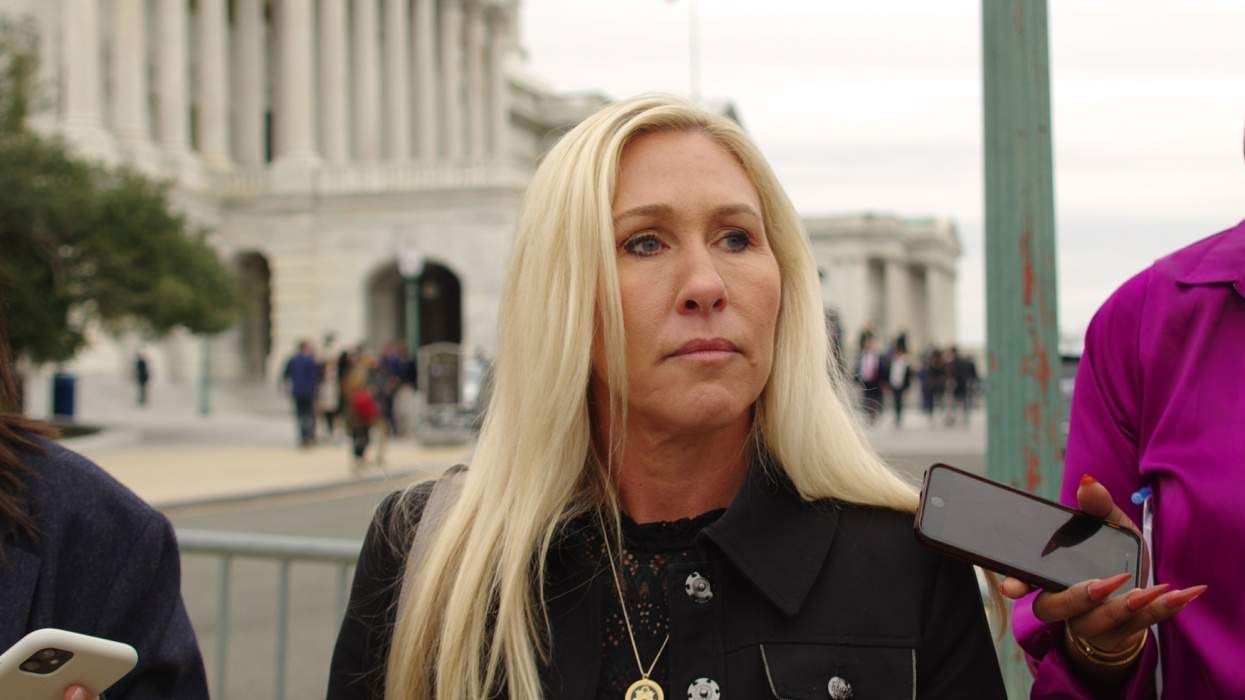
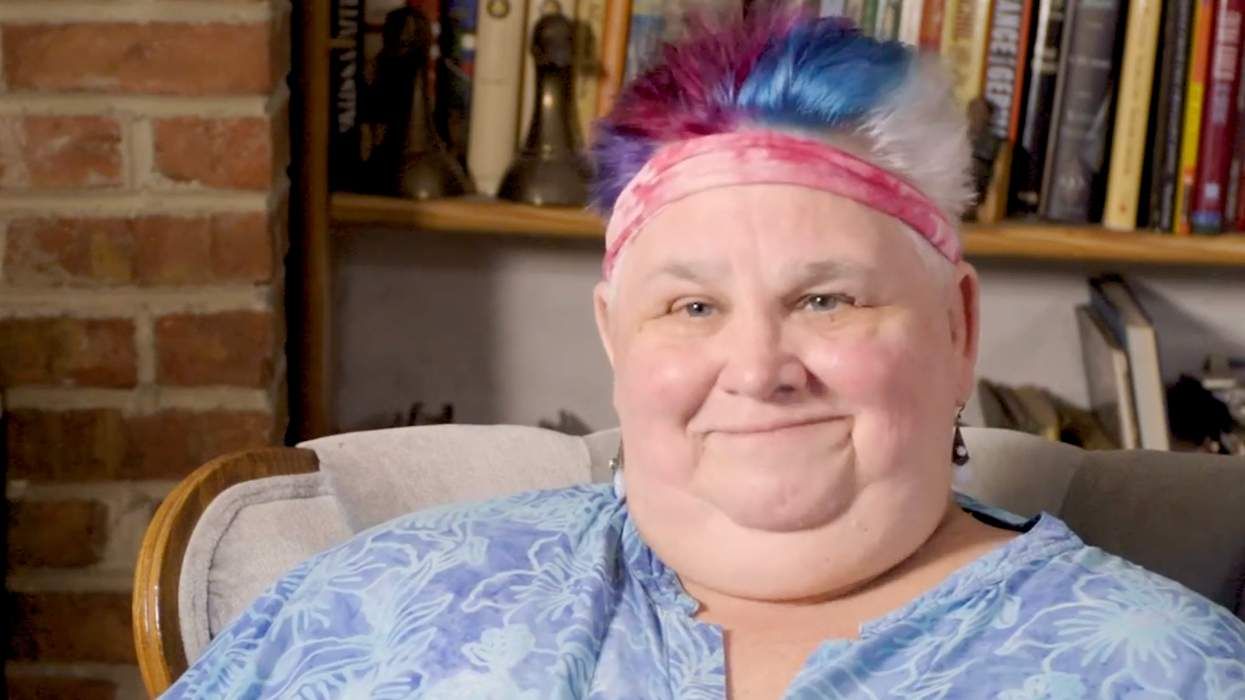








































Charlie Kirk DID say stoning gay people was the 'perfect law' — and these other heinous quotes